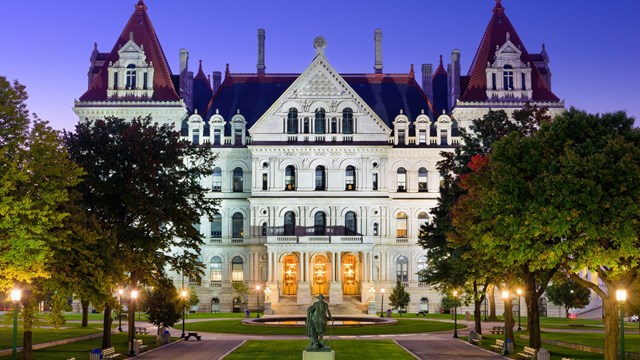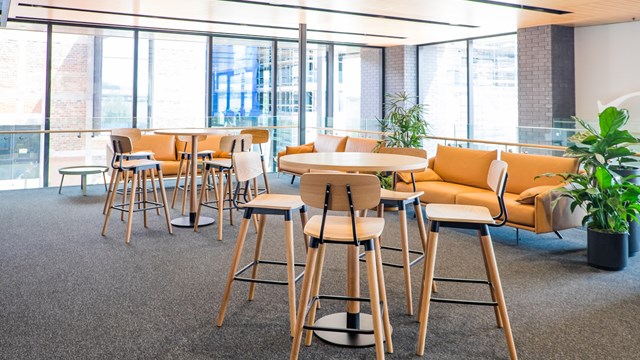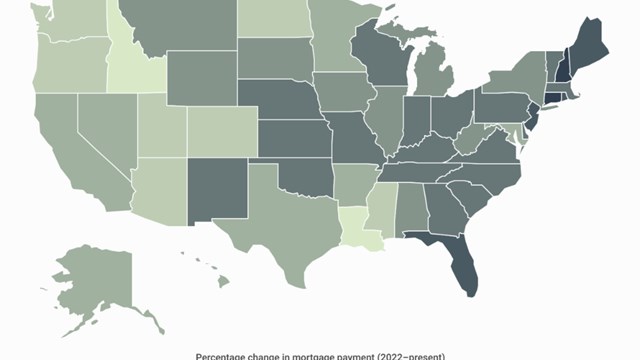
With the coronavirus/COVID-19 pandemic throwing the brakes on so much everyday economic activity, the nation may be teetering on the verge of recession as governments and financial institutions attempt to control not just the spread of COVID-19 itself, but its long-reaching economic impact as well.
Among those watching the markets and trying to keep transactions moving while protecting themselves against infection are buyers, sellers, brokers, banks, appraisers, and other parties crucial to the processing of mortgages for co-op and condo units. They’re all navigating a profoundly altered landscape without much of a roadmap.
The Front Line
Jonathan Miller, President of Miller Samuel, a prominent national real estate appraisal firm based in New York, says his team recognized the problem early on. “Several weeks ago, as news of the virus spread,” he says, “we asked our office staff to work from home as they saw fit. Now we have a policy that when we get an order for an appraisal from a client” -- usually a bank -- “we call the owner of the subject property, and if the owner is willing, we do an inspection with the proper precautions.” Those precautions of course include a mask, gloves, and hand sanitizer. “Over time,” Miller says, “it’s become obvious to both the lenders and to us that sellers are at least as concerned about contamination as we are.”
Miller goes on to say that he has suggested to lenders and other clients that his firm could do drive-by or exterior inspections on a contingent basis, with internal inspections to be completed at a later date. So far however, lenders have been lukewarm on this idea -- perhaps due to legal requirements around the inspection process.
Precautions aside, Miller candidly points out that considering the growing severity of the crisis, asking an appraiser (or anyone, for that matter) to come into close contact with other people in unmonitored spaces puts the appraiser, the unit owner, and anyone doing a site inspection for whatever reason in harm’s way. Doing so in order to maybe save some money on monthly mortgage payments is not without ethical implications.
Lenders’ Concerns, and Action
Mary Alex Blanton, a senior vice president with National Cooperative Bank (NCB) in New York City says that “We are still processing and closing transactions, but things are changing daily. NCB has a robust business continuity plan for all contingencies.” According to Blanton, they continue to do closings on individual shareholder mortgages, but remotely, via email, with electronic signatures.
Blanton explains that her firm is awaiting guidance on regulatory guidelines for appraisals and inspections of all types. They are also contemplating mortgage relief for existing borrowers on a case-by-case basis. Blanton stresses that things are changing daily, and she expects NCB to be very actively engaged in dealing with the financial ramifications of the crisis for co-ops and condos.
From the Legal World
Mark Hakim, a director with Manhattan-based law firm Schwartz Sladkus Reich Freenberg and Atlas, describes the bottleneck attorneys are facing as the crisis grows: “Existing commercial and residential lending and transactional deals [were] pushing at the proverbial light speed to close before the shutdown in New York City, while the personnel were available. New or unsigned pending deals, including nonessential construction projects that were in the works and looked like a sure thing a week ago, are being delayed or cancelled altogether while everyone contemplates where they will be personally, and where the industry may be. Existing deals are being delayed indefinitely, or renegotiated while everyone absorbs the information and tries to assess the possibilities of what may be ahead.”
With new developments and implications emerging daily as the nation and world do their best to cope with this time of upheaval, it’s almost impossible to predict with any certainty how exactly co-op, condo, and HOA communities will be impacted in both the long and short terms. Experts and laypeople alike are finding themselves in uncharted waters, and what’s certain is that the reverberations of the coronavirus/COVID-19 pandemic will be felt for a long time to come.
A J Sidransky is a staff writer/reporter for The Cooperator, and a published novelist.









Leave a Comment